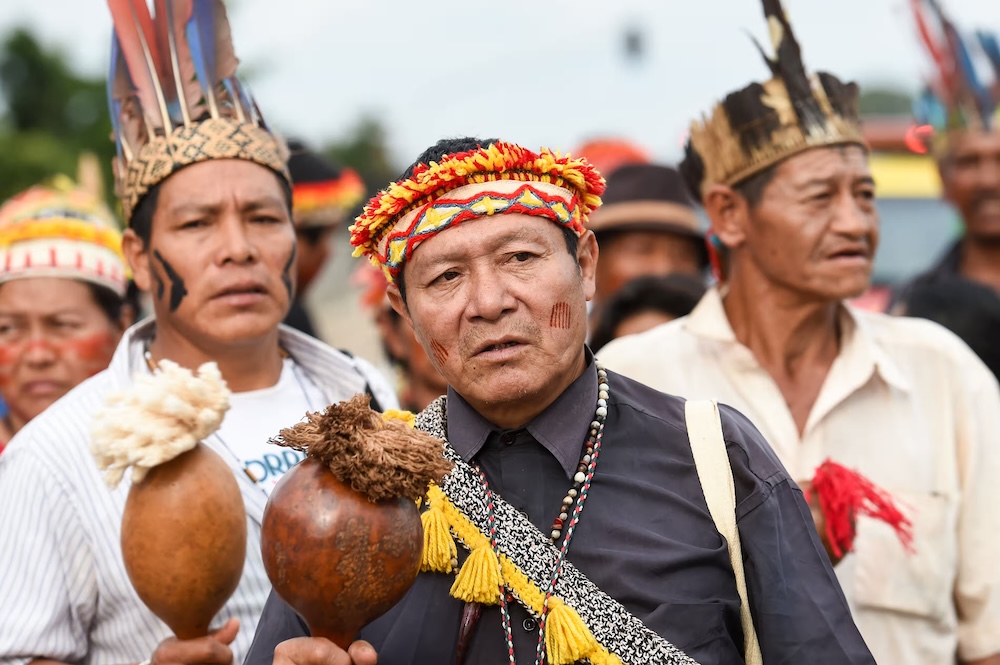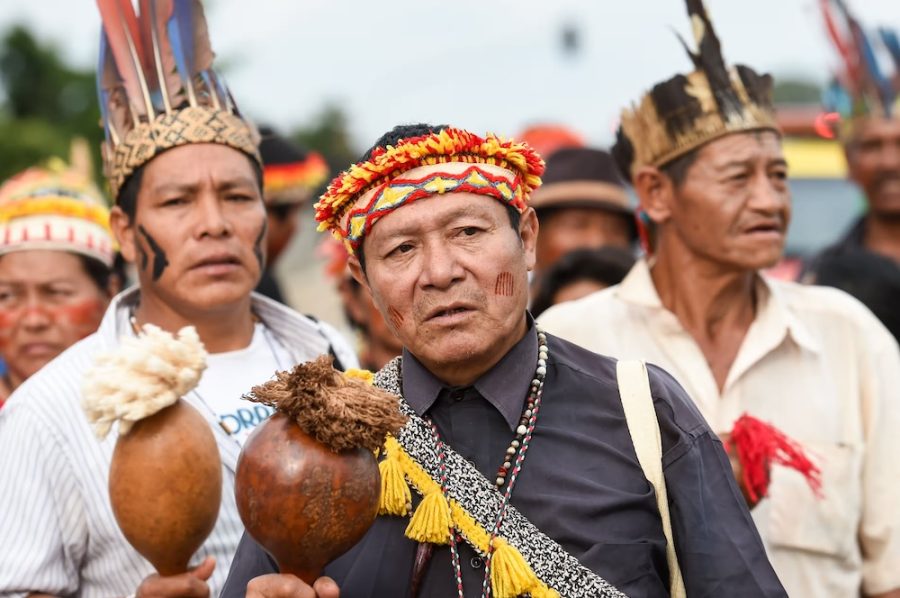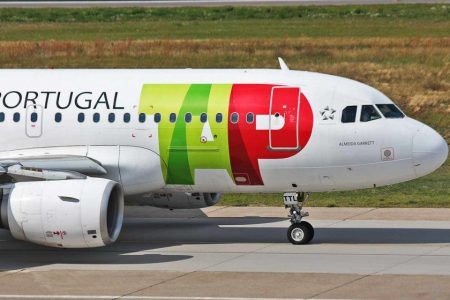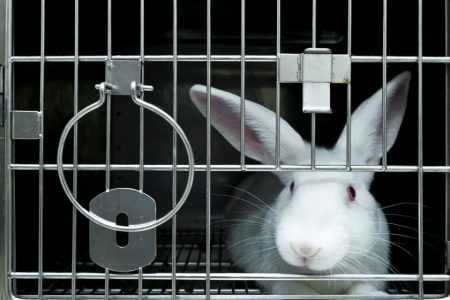As Brazil marks 60 years since the military coup d’état, the head of the amnesty committee tasked with investing the regime’s crimes made her country’s first-ever apology for the torture and persecution of Indigenous people, the Guardian reports.
“In the name of the Brazilian state, I want to say sorry for all the suffering your people were put through,” said Eneá de Stutz e Almeida, law professor and president of the commission, as she knelt before Indigenous leader Djanira Krenak. “In truth, I’m not saying sorry [only] for what happened during the dictatorship. I’m saying sorry for the persecution your people – as well as all other native people – have suffered over the last 524 years, because of the non-Indigenous invasion of this land, which belongs to you.”
Brazil’s dictatorship ended in 1985. Writer and activist Ailton Krenak told the Guardian that he hoped the commission’s apology would pave the way for reparations, including land-based compensation to the many Indigenous groups stripped of their land during the military dictatorship. Indigenous congresswoman Célia Xakriabá said the apology meant little “if Indigenous rights continue to be violated.”
[See more: New law takes aim at Indigenous land rights in Brazil]
While the scope of the commission’s apology was broad, its work since forming in 2002 has centred on two specific cases: the Krenak people of the southwestern state of Minas Gerais and the Guarani-Kaiowá people of Mato Grosso do Sul, near the western border with Bolivia and Paraguay. Both Indigenous groups were forced from their lands and brutalised by the dictatorship.
A racist “re-education” campaign targeted at Indigenous people resulted in members of many groups, including the Krenak, being incarcerated in a prison-like “reformatory” where they were physically abused, exploited and forbidden from even speaking their own language. Krenak, a teenager at the time, described the “laboratory of utter terror” that was the Rural Indigenous Guard, a militia created under the campaign to enlist and train Indigenous people in torture techniques.
The reformatory opened in 1969, the most repressive period in the dictatorship and the beginning of the so-called “Brazilian miracle” – a period of rapid economic growth that unleashed a reign of terror on Indigenous peoples, pushing some to the brink of extinction. Krenak hopes that remembering this terrible period in the country’s history will serve to educate the new generations of Brazilians. Those “who don’t remember the past are condemned to misery,” he told the Guardian.






